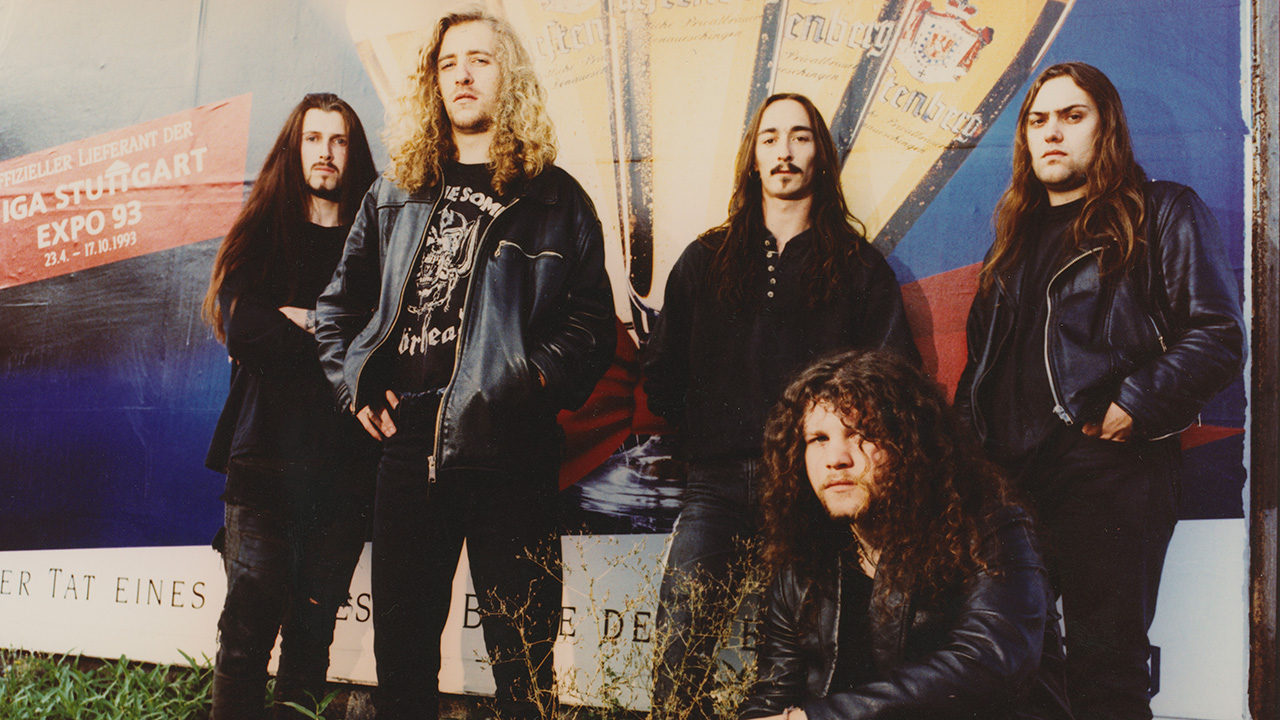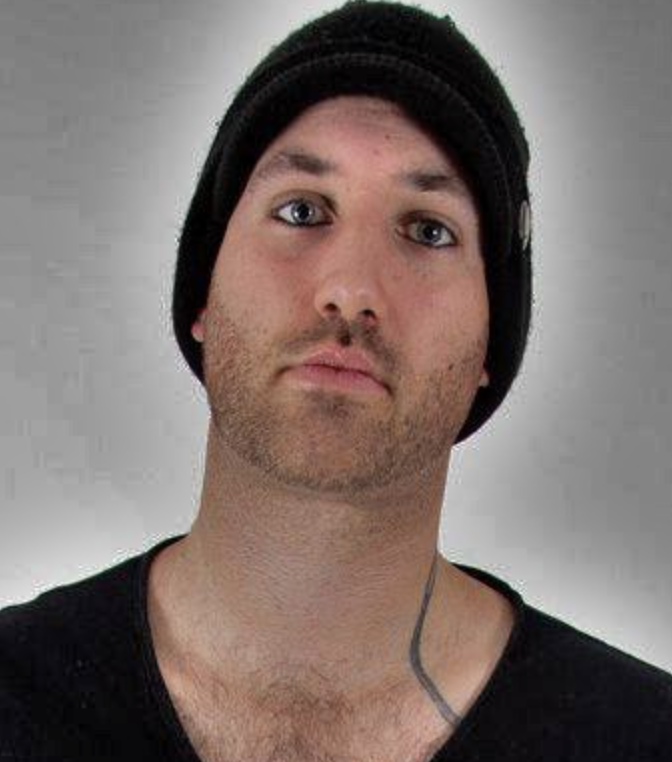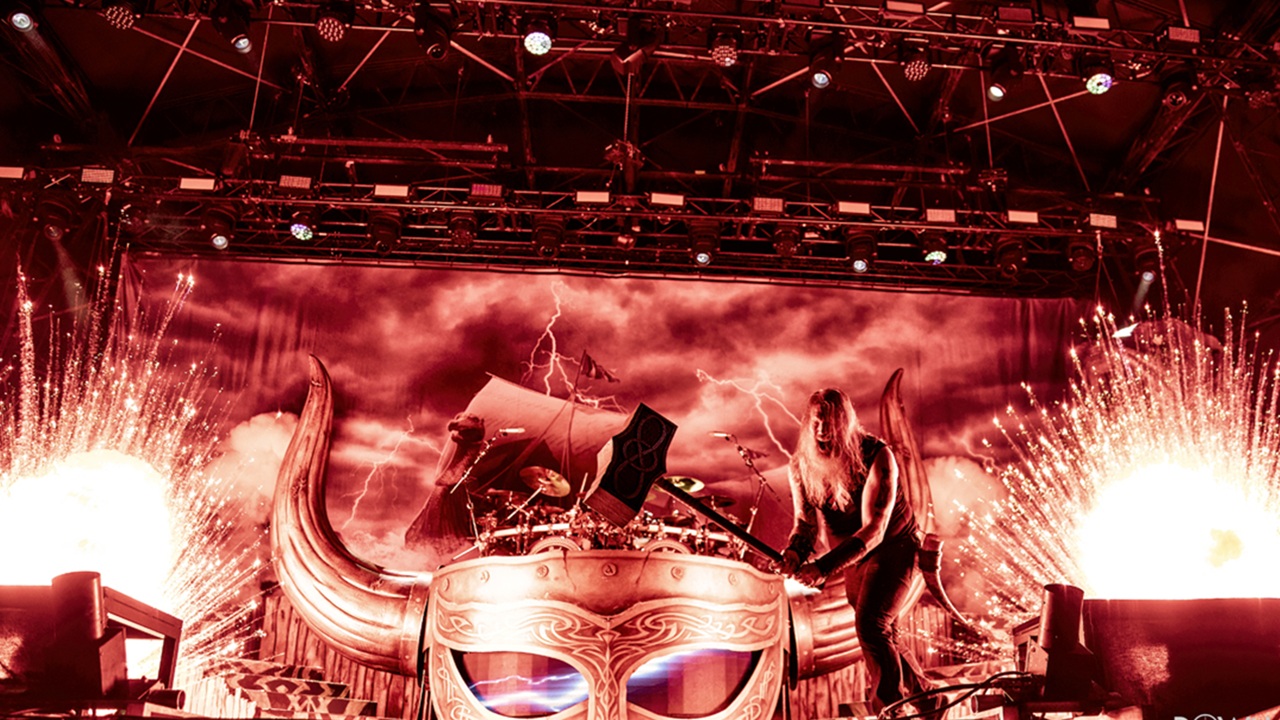How British metal (almost) ruled the 90s
British metal should have reigned supreme in the 90s, but nu metal stole its crown. We track down the era’s forgotten bands and the survivors who live on today

Select the newsletters you’d like to receive. Then, add your email to sign up.
You are now subscribed
Your newsletter sign-up was successful
Want to add more newsletters?

Every Friday
Louder
Louder’s weekly newsletter is jam-packed with the team’s personal highlights from the last seven days, including features, breaking news, reviews and tons of juicy exclusives from the world of alternative music.

Every Friday
Classic Rock
The Classic Rock newsletter is an essential read for the discerning rock fan. Every week we bring you the news, reviews and the very best features and interviews from our extensive archive. Written by rock fans for rock fans.

Every Friday
Metal Hammer
For the last four decades Metal Hammer has been the world’s greatest metal magazine. Created by metalheads for metalheads, ‘Hammer takes you behind the scenes, closer to the action, and nearer to the bands that you love the most.

Every Friday
Prog
The Prog newsletter brings you the very best of Prog Magazine and our website, every Friday. We'll deliver you the very latest news from the Prog universe, informative features and archive material from Prog’s impressive vault.
August 17, 1996 was a good day to be a British metal fan. The sun shone on the hallowed turf of Donington Park, and tens of thousands of metalheads made the annual pilgrimage to witness a reformed and re-made-up Kiss headlining that year’s Monsters Of Rock alongside Ozzy, Sepultura and many more. Plus, while the mainstream was wrapped up in ‘Cool Britannia’ and the Britpop phenomenon, our metal bands had been thriving; Carcass, Napalm Death, Bolt Thrower and more were all doing fine business, despite the threat of grunge that had killed off so many of their US peers.
“It was incredible when you think back,” reflects Nick Holmes of Yorkshire doom merchants Paradise Lost. The band had broken out of the underground, been tipped as the next Metallica and, with 1995’s classic Draconian Times in their back pocket, were added to the Main Stage line-up. “We always dreamed about playing there. We don’t really get that excited by anything, to be honest, but that was pretty special after all the work we’d put in.”
Everything seemed set up for a moment of coronation for the new breed of British metal, a springboard to the next level for our scene... but, of course, that isn’t what Donington ’96 is remembered for. A few hours after Paradise Lost stepped offstage, Korn arrived to headline the second stage of the festival, their incredible, day-stealing performance triggering the forthcoming domination of the as-yet-untitled nu metal movement.
Almost overnight, the pendulum swung back in favour of the USA: nu metal became the biggest movement on Earth, Carcass split, Bolt Thrower were plagued by line-up changes, Paradise Lost rejected metal for synth-pop, and a generation of young, vibrant British metal bands ended up being treated almost exclusively with apathy and ignorance for half a decade.
“It was a really great scene back then, because it was so underground,” says Orange Goblin frontman Ben Ward. “You’d go see Electric Wizard or Cradle Of Filth in [south east London’s] The Amersham Arms and Barney would be handing out flyers for Napalm Death gigs. We didn’t think about commercial concerns, because there was no chance of it. Everyone sort of knew each other and got along whatever music they were playing or into.”
The UK may have invented metal, but there was no place for the more dour, straightforward British stereotype in the nu metal scene that was taking over in the late 90s.
“It was funny to see the change in the scene,” says Paul Catten of Herefordshire-based metallic hardcore band Medulla Nocte. “We were coming from the punk scene and it just hit a point where you’d suddenly see all these people in baggy jeans getting piercings and dying their hair blue or whatever.”
Sign up below to get the latest from Metal Hammer, plus exclusive special offers, direct to your inbox!
It’s safe to say that, for some of the bands that had enjoyed success in the early 90s, nu metal was an unwanted addition. Nick Holmes remembers being backstage at a festival during the years of Korn and Limp Bizkit’s dominance.
“They were brash and loud,” he laughs. “I didn’t know who these bands were, but I saw a bunch of guys all smiling and high-fiving each other and wearing multicoloured clothing. I remember thinking, ‘This ain’t metal, is it?! Smiling!’”
The British bands of the time were not anti-American, but they did take their influences from other areas of the US scene. “We loved American bands and were hugely influenced by them,” Karl Middleton of Nottingham post-metallers Earthtone9 explains. “But our problem is that we weren’t influenced by hip hop. We were taking bits of Corrosion Of Conformity and Kyuss, and there was very little of that in what was popular at that time. The band from our scene we really looked up to was Pulkas; they had this very British, almost Killing Joke, kind of vibe.”
Pulkas were one of the first bands to turn heads in the press during the dominance of nu metal. Although they were short-lived, the band splitting with no fanfare shortly after the release of 1998 debut album Greed, they were arguably the first band from British shores that had the audacity to take the fight to America, leaning heavily on the atmospherics of Tool and the textured groove of Deftones or Helmet. They wouldn’t be the last.
“I remember when Pitchshifter signed to Geffen,” says Karl, still awed all these years later. “One of our bands signing to an international major was a game-changer. Everyone re-evaluated the possibilities of what they could achieve.”
Pitchshifter were undoubtedly the biggest band of this period, their evolution from underground, Godflesh-worshipping industrialists to major-label drum’n’bass punks as surprising as it was exciting. Their 1998 album, www.pitchshifter.com, was their first to feature clean vocals.
“I didn’t want to make another record with grunting vocals,” Pitchshifter vocalist JS Clayden explains. “The guys were gracious enough to let me present more varied vocal and song ideas. I believe British anything can be successful if it has structural support. Unfortunately, that support had to come from the USA. Only Geffen were adventurous or dumb enough to back our brand of experimentation, so we took the money and ran.”
Pitchshifter’s success seemed to make the door creak open, and trickles of British bands, such as anglo-Irish rap-metallers One Minute Silence and industrial northerners Kill II This, began to experience a modicum of success – albeit in guises that borrowed from the US metal sound du jour.
“I lost interest as that decade progressed,” says Napalm Death’s Barney Greenway, who appeared on Kill II This’s Deviate album in 1998. “The spark that made heavy music interesting wasn’t there for me anymore. So we went back to being inspired by the things that originally inspired us, and if we did take anything from 90s music it was more stuff like Sonic Youth.”
But progress was being made. In December 1999, British/Gibraltan post-grungers Breed 77 opened for Black Sabbath at their one-off show at the Astoria, and Kill II This opened for Slipknot at their legendary debut UK show there. At the same time, One Minute Silence were out as main support to Machine Head on their Burning Red tour, and then played on Slipknot’s first-ever UK tour. Once again, though, it was Pitchshifter who were the trailblazers. They were added as the opening band on the bill of the inaugural UK Ozzfest at Milton Keynes in 1998, proving that British bands could hold their own if given the chance.
“That was a trip,” JS Clayden remembers. “We learnt a lot on Ozzfest. Love them or hate them, the American bands took no prisoners – they killed it like it was their last show at every gig.”
While Pitchshifter had the industry infrastructure in place to rise to the challenge of playing alongside the American behemoths, many of their peers didn’t, and the thrill of being placed on a bill with some of the biggest names in metal didn’t last long when the reality of the situation was made apparent.
“It’s the old adage: be careful of what you wish for,” says Karl, when asked about Earthtone9’s experiences of touring with the likes of Soulfly and Glassjaw. “We soon realised that without the machine you need for touring behind us, we couldn’t compete. We can’t complain about our label and the small budget we were on, but ultimately, you’re being put in front of the first few people through the door who don’t know your stuff and might not necessarily be interested in what you’re trying to do.”
“I loved the challenge,” smiles Paul Catten when remembering Medulla Nocte’s stint as the opening band on, again, a Soulfly tour. “You see your name on the poster with the bloke who used to be in Sepultura and you think, ‘Bloody hell! This’ll be good!’ But I remember building up the London show in my head, and when we got onstage there were only about 30 people in the building! We still played well, mind.”
While most of the British bands were swimming against the tide of the American onslaught, one band vehemently went out of their way to alienate themselves from everyone: Nottingham’s Iron Monkey. Their blend of New Orleans sludge, mixed with British grit and driven by the inhuman, nihilistic belch of iconic frontman Johnny Morrow, made them a band to look up to.
“They were something else,” laughs Paul, who formed Murder One with Johnny in 2001 after the break-up of their own bands (Johnny sadly passed away shortly after). “The first time I saw them, I had to laugh; this quiet, polite guy that I’d met before the show was up there making all these noises! And they didn’t give a fuck. Bands all say that, but Monkey were proper punk rock.”
By the dawn of the new millennium, most of the lower tier of British bands had split up due to a lack of interest. Those that were continuing suffered from diminishing returns, but Earthtone9 gave the scene its definitive parting shot with the arc’tan’gent album. This sprawling masterpiece should have catapulted them to the highest of heights, but instead they split just over a year after its release.
“We were really happy with the record,” says Karl. “We didn’t know that it’d be thought of as our ‘magnum opus’, we just felt we were getting closer to our initial vision. But it wasn’t working as a unit; it was actually a relief when we split.”
At this point, it was difficult to see whether British bands would ever gain international traction, but a phenomenon had been building behind the scenes.
“We did a gig in Newport in 1997 and it was packed,” Paul tells us, shaking his head. “It was us headlining and the drummer from this band Public Disturbance told us that his new band were opening for us. All these girls were in the crowd, and this band played and then they all left, and we played to hardly anyone! Ha ha ha! I knew then that they were on to something.”
That drummer was Ian Watkins and the band were Lostprophets. Due to obvious circumstances, we’re loathe to go too far into their story, but they were the first British rock band in a decade that connected on a larger scale. Their debut album, 2000’s thefakesoundofprogress, was re-released on a major label the following year.
“They were the right mix of discord and melody at the right time,” says Jon. “Nu metal, as soon as the costumes were better than the music, was bound to self-destruct. An audio macrophage feasting on its own flesh.”
As nu metal flooded the mainstream, the metal world looked around for something new. The Dillinger Escape Plan’s visionary masterpiece Calculating Infinity arrived in 1999, and ushered in a new attitude to music. Suddenly the dirtier, angrier, more progressive and noise-based likes of Meshuggah, Botch, Candiria and many more shifted focus away from the ludicrously over-the- top third wave of nu metal and, slowly but surely, being British no longer reduced you to second-class citizen status. Corby-based sludge metal sextet Raging Speedhorn came within touching distance of the UK top 40 singles chart, Watford tech oddities Sikth suddenly found themselves being played on Radio One, and the likes of Hundred Reasons and Funeral For A Friend, and later Bullet For My Valentine and Gallows, put heavier British music back where it belonged... to the point where, over 20 years after Paradise Lost stepped out onto the Main Stage at Donington Park, one of the original members of British metal’s 90s underground scene did the same.
“It was hugely satisfying,” says Ben Ward of Orange Goblin’s appearance on Download 2017’s Main Stage. “After all these years of toil, we are taken seriously. People like Andy Copping, who books Download, can rely on a homegrown metal band to stand among the world’s biggest acts. You look at us and at Electric Wizard, and we’ve grown from that scene I was talking about earlier. We never could have imagined that day coming back then, but if we’ve played our part in helping it to where it is now then I’m happy with that.”
The late 90s may not have been the most commercially viable time to make metal in this country, but without the grassroots underground scene, we may not have reached a point where we hold the likes of While She Sleeps, Bury Tomorrow, Venom Prison, Black Peaks, Employed To Serve and the rest in such esteem.
“I wouldn’t want to comment on the artistry of others too much,” says JS Clayden to sign off. “But I think that Pitchshifter and Earthtone9 were underground bands that made music from the heart and didn’t have to pretend to write ballads to make more money. From my perspective, our music was a genuine and stentorian voice that came out by necessity rather than any nonsense designed to fill our bank accounts.”

Stephen joined the Louder team as a co-host of the Metal Hammer Podcast in late 2011, eventually becoming a regular contributor to the magazine. He has since written hundreds of articles for Metal Hammer, Classic Rock and Louder, specialising in punk, hardcore and 90s metal. He also presents the Trve. Cvlt. Pop! podcast with Gaz Jones and makes regular appearances on the Bangers And Most podcast.
